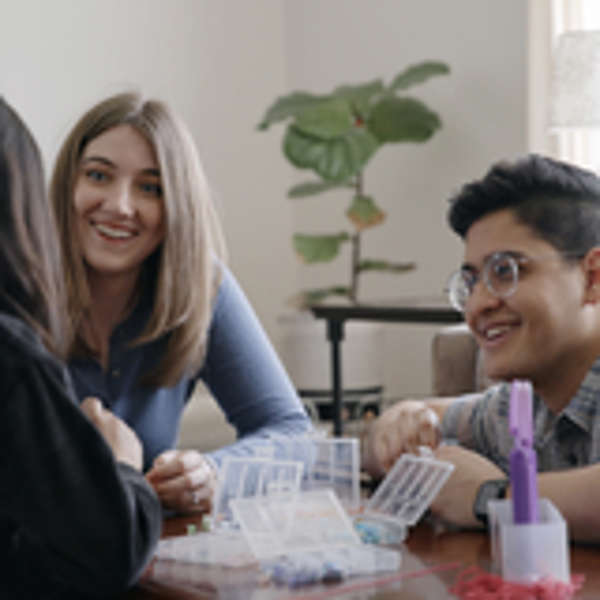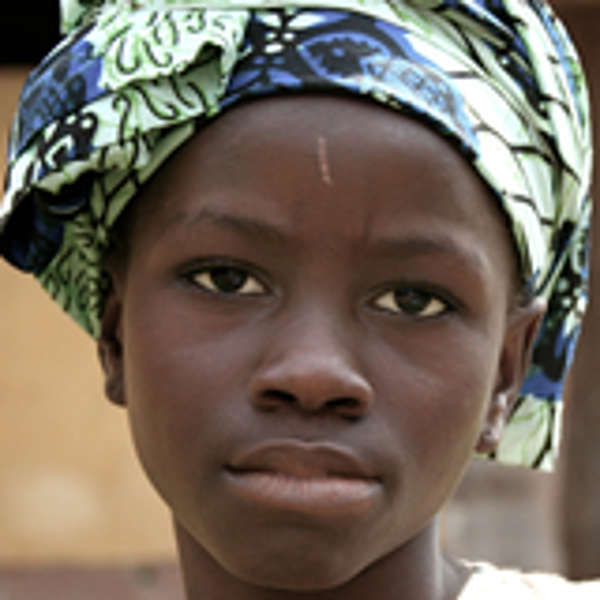What would you do to protect your kids?

If you’re a parent, you know there are few circumstances that make you feel more helpless than when your child is in danger. You’d do anything in your power to secure your child’s safety. But for parents in Central America, sometimes even the best option available seems like no option at all.
For many years, Honduras, El Salvador, and Guatemala have been identified among the most violent countries not at war. According to the Washington Office on Latin America, female homicide rates in these countries is among the highest in the world. Gang members and drug cartels rule in cities and rural areas, collecting an estimated $650 million a year in extortion fees. Failure to pay can result in kidnapping, rape, and death.
UNICEF reports that gang members openly recruit children inside schools—kids even younger than 10—threatening to harm them or their family members if they don’t join. None of their options are ideal. If they stay, they’ll either be forced to perpetuate the violence or risk brutal retribution if they refuse.
Or they can risk everything by fleeing their homes for a chance to live.
In 2019, according to Kids in Need of Defense, more than 80,000 unaccompanied Central American children, seeking protection in the U.S., were apprehended at the U.S. southern border.
That’s why Bethany provides services for these vulnerable children—kids who have experienced violence, trauma, and extreme instability in their home countries.
What would you do? At 13, Pablo* is concerned about the increased gang activity in his Honduran neighborhood—many of his friends know someone who’s been extorted, kidnapped, raped, or killed. Some of Pablo’s classmates have joined the gangs under threats to themselves or their family members, and he knows even younger boys have been recruited. Everyone in the community is on high alert, but reports to the police go largely unanswered. In some cases, calling the police has made families more of a target.
The same week Pablo’s neighbor went missing, a car followed Pablo and his friend as they walked home from school. Two days later, a bullet came through the front window of the family’s house. They knew things would escalate—for Pablo and for the family—unless Pablo complied.
Terrified, Pablo’s mother, Luisa, phoned her brother in the U.S. and made a plan to get Pablo to safety. “Ve ahora—go now,” said Luisa’s brother. “We have to get Pablo out.”
Early the next morning, Pablo left home—with just a backpack and what little money Luisa could spare—and began his grueling and dangerous journey.
*Pablo’s story is a composite, representing many unaccompanied children we’ve served.
“What kind of parent” would risk their child’s safety like that? Negotiating violence, danger, and despair, parents like Luisa are doing the best they can to protect their children. They’re often forced to make impossible choices when survival is on the line.
Can you put yourself in their shoes for just a moment? What would you risk if your child was in danger? What would you sacrifice for a chance to keep them alive?
What happens next? Most unaccompanied children who arrive at the southern border are seeking safety with a family member who already lives in the U.S. Typically, children are apprehended by U.S. Customs and Border Patrol (CBP), which then refers them to the Office of Refugee Resettlement (ORR). Private agencies, including Bethany, get referrals from ORR to help these children and begin working to locate the child’s family member. Once we locate that person, we confirm the child’s relationship to the adult and ensure that the adult is able to safely care for the child. When release is approved, a Bethany caseworker travels with the child to meet the family member.
In most cases, we’re able to complete these required steps and reunify children with their family members within 45 days. During that time, children stay with a licensed transitional foster parent, and they have access to educational, medical, mental health, and legal services. Even after reunification, Bethany may be able to offer post-release services for both parent and child, including counseling for the trauma they’ve experienced.
When children and families are caught in such dangerous circumstances, our faith compels us to act. We belong to each other, and we believe every child deserves to be safe.
- Between 2011 and 2017, asylum applications from Guatemala, Honduras, and El Salvador increased 991% (United Nations High Commissioner on Refugees, www.unrefugees.org)
- In 2019, more than 80,000 children arriving alone at the U.S. southern border were apprehended by Customs and Border Protection (Kids in Need of Defense, www.supportkind.org)
- Bethany locations in six states—Michigan, Maryland, Pennsylvania, Tennessee, Indiana, and Florida—provide transitional foster care and help children reunite with family members
- In 2019, 266 transitional foster families provided temporary care for 667 unaccompanied children until they could be reunited with a family member or guardian
- Unaccompanied children are typically reunited with a family member or guardian within 45 days
Visit Bethany.org/TFC to learn more about Bethany’s work with unaccompanied children.



